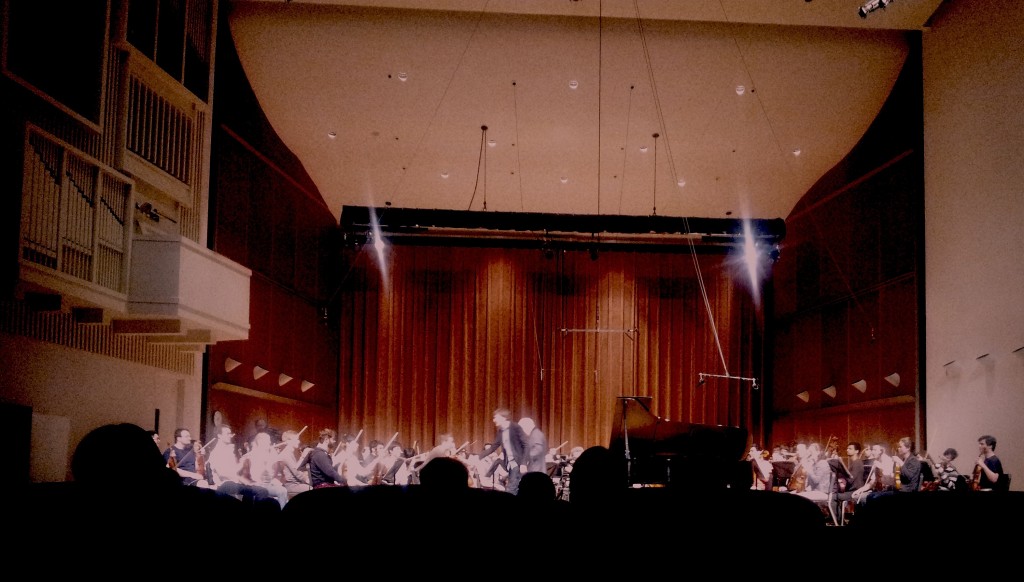Preview: The Birth of a Russian Concerto
This poster/flyer has been circulating for weeks ahead of the event.
The question floating around Cleveland these days when asking about the new Piano Concerto to be premiered here is “What style is it in?” The assumption seems to be that a work by a famous young performer could only be derivative. If an unleashing of primordial energies and arcane secrets is a style, then Daniil Trifonov’s new work is in a category of its own.
Daniil Trifonov, shown here in an episode of Living the Classical Life, plays his work with great virtuosity and inner tension
Seemingly only the realm of comparisons satisfies in the 21st century: there are hints of harmonic language and rhetoric that have moved beyond the territory of the exploratory Rachmaninoff Fourth Concerto, and the manic energy of the Prokofiev Second and Third. There is a narrative sense of an epic fable, as only Prokofiev’s orchestral works could tell–the expressive and atmospheric string glissandi in the finale of Trifonov’s work recall the Scherzo of the Prokofiev Third Symphony, and a fairy-tale quality in quieter moments seems reminiscent of the “Tales of a Grandmother”. The darkness of the opening has hints of orchestration by Richard Strauss, as does the seductive waltz section of the finale with instrumental solos. Harmonies in the second movement are of a complexity and luminosity of middle-period Scriabin, while the interplay of orchestral and piano resonances sometimes goes beyond romantic-era discoveries–surely under the influence of composer Keith Fitch, who supervised the composition of the work. Despite all these comparisons, and a Russian character sometimes derived from Orthodox harmonies and rustic rhythms, this concerto is an energy that can hardly contain itself.
The Cleveland Institute of Music is prepared for a spectacular event.
In the past months during visits to the artist’s home, I heard sketches and sections of the work as it took shape as played and explained by the composer. The work is as Trifonov is in life–unbridled need to express, and through incredible energy and Olympian charisma.
An exclusive rehearsal, “no exceptions”.
The Cleveland Institute of Music, where the work will be premiered today, has spared no publicity for the event, for which excitement and curiosity have been running high. I arrived to a very forbiddingly closed dress rehearsal, at which the local student community was conspicuously absent; the special privilege for those present was as such only amplified. Red carpets had been rolled out for the event the next day, and expensive tropical flora had been elegantly placed. Do these flowers have to disappear? What could be better than piano and palms.
This first piano concerto is in fact a boiling cauldron of lava–intense throughout, with brief moments of respite that gave welcome and transparent relief. The solo piano part was delivered with such virtuosity and masterful ferocity that one could scarcely imagine this to be a first performance–the demands from the solo part, true to the Heinrich Neuhaus tradition, seem to summon more from the piano than physically possible. The orchestral playing was exceptionally detailed and well-prepared by conductor Joel Smirnoff, also president at the Institute. There were exuberantly arresting violin solos from concertmaster Victor Beyens, in an orchestral accompaniment of energy to match the piano part.
A work of this density and complexity likely reveals more secrets upon repeated listening, but surely tonight’s audience will find much that is immediately exciting, overwhelming, and at times even transcendent. How often does one experience the premiere of a new piano concerto, as played and composed by the same young artist? It is a rare occasion for sure, and one that will be witnessed by a small but internationally-assembled audience.





